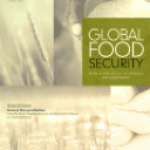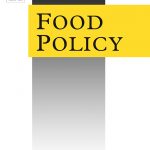Author: Vidya Vemireddy

Women’s Empowerment and Intra-Household Diet Diversity Across the Urban Continuum: Evidence from India’s DHS
Abstract Read a policy brief based on this study. Women’s empowerment has been associated with improved nutritional outcomes in various settings. However, the gains from empowerment do not necessarily accrue to different members of the same household in the same manner. Furthermore, the relationship between...

Pathways from Agriculture to Nutrition in India: The Role of Women’s Time Trade-Offs and Empowerment
Abstract Agriculture plays a key role in improving nutrition as a significant proportion of the malnourished population lives in rural areas and depends on smallholder agriculture for their sustenance. About 30 percent of the labor force in agriculture in India are women, and they contribute...

Adapting the Women’s Empowerment in Agriculture Index to Specific Country Context: Insights and Critiques from Fieldwork in India
Abstract The Women’s Empowerment in Agriculture Index (WEAI) is a direct, multi-dimensional measure of women’s access to resources and decision-making in various domains of agriculture. However, several challenges characterize its use: adaptation of questionnaires to local agricultural contexts, modifications to index construction once underlying activities and adequacy thresholds are...

Nutritional Outcomes of Empowerment and Market Integration for Women in Rural India
Abstract Over half of all women of reproductive age are affected by anaemia in India. In this paper we study the role that both household market integration and women’s empowerment in agriculture can play in determining women’s dietary diversity. Our analysis is based on primary...

Ground Truthing the Cost of Achieving the EAT Lancet Recommended Diets: Evidence from Rural India
Abstract Read a policy brief based on this study. In this paper, we quantify the divergence in the cost of current diets as compared to EAT Lancet recommendations at the subnational-level in India. We use primary data on food prices and household food purchases, and...

Seasonal Time Trade-Offs and Nutrition Outcomes for Women in Agriculture: Evidence from Rural India
Abstract Read a policy brief based on this study. Women in agriculture are involved in agricultural activities and are solely responsible for household-level unpaid work. They face severe time trade-offs between agricultural and household activities across crop seasons. Recent literature suggests that these time trade-offs...

